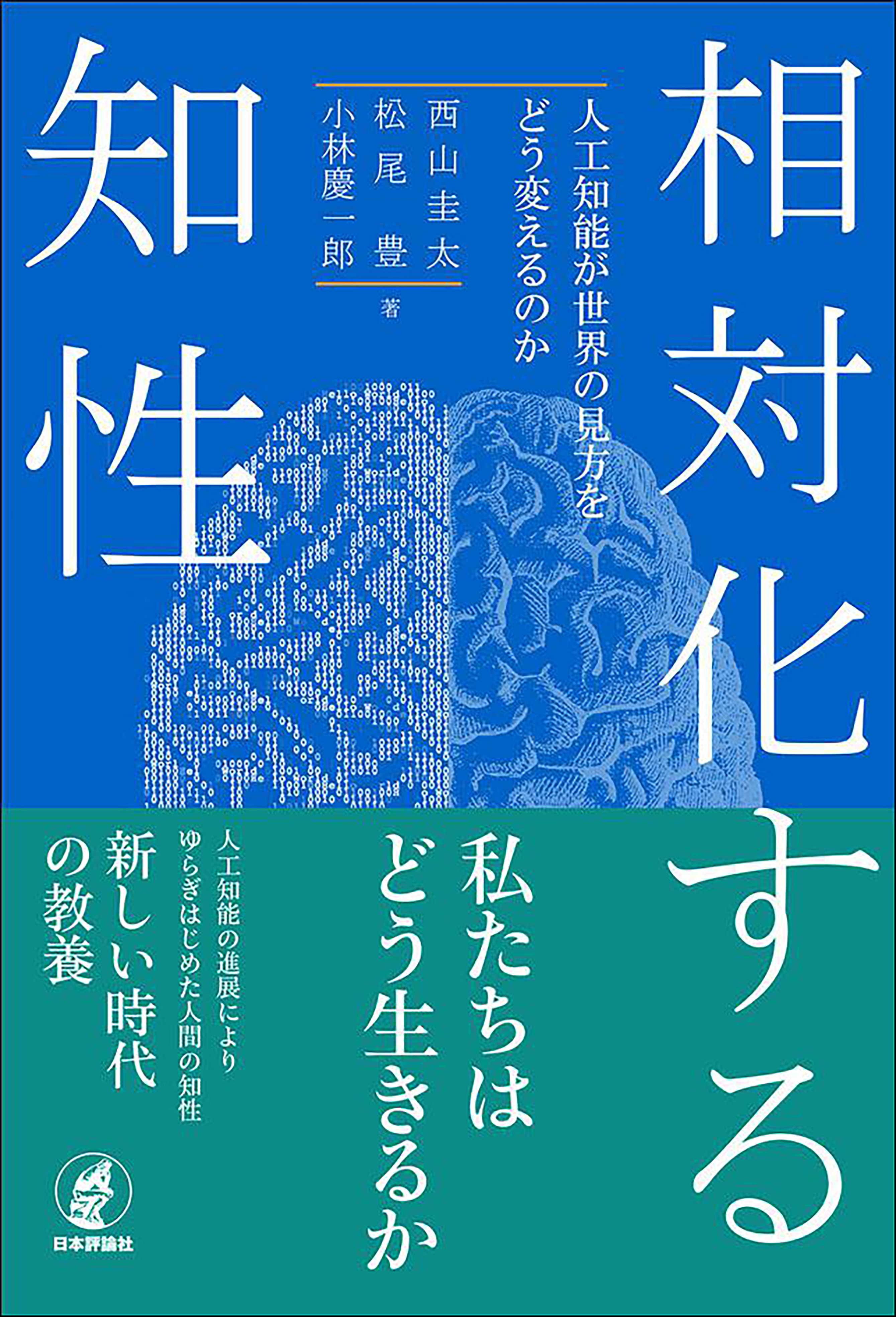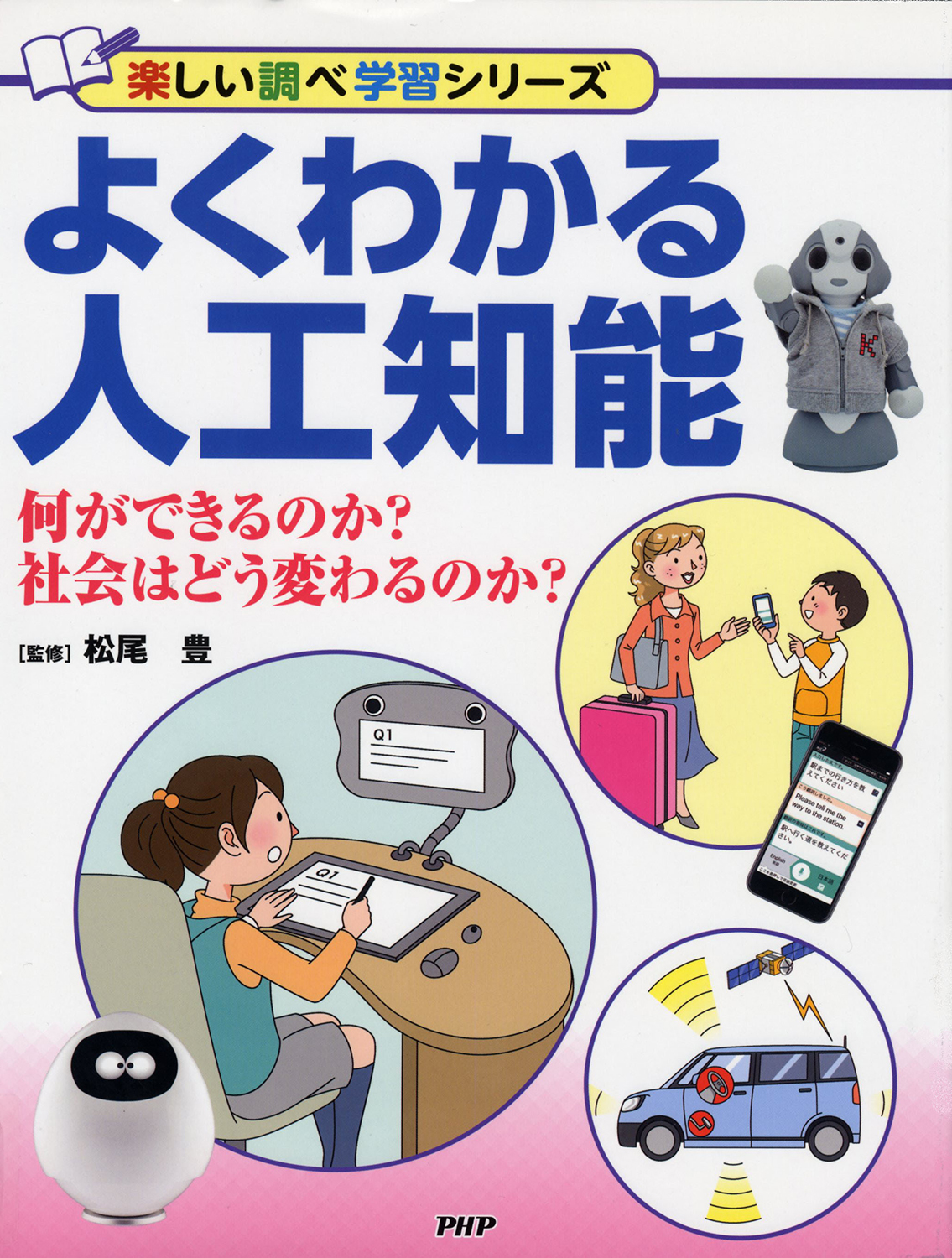
Title
Soutaika suru Chisei (The relativization of knowledge: How artificial intelligence changes our worldview)
Size
360 pages, 127x188mm
Language
Japanese
Released
March, 2020
ISBN
978-4-535-55907-3
Published by
Nippon Hyoron sha co., Ltd.
Book Info
See Book Availability at Library
Japanese Page
This book was forged during intellectual exchanges among its three authors. I wrote the first section, and the second section was authored by Mr. NISHIYAMA Keita, who was the Director and Executive Officer at Tokyo Electric Power Company (TEPCO) at that time, later served as the Director-General of the Commerce and Information Policy Bureau at the Ministry of Economy, Trade and Industry (METI) and is currently a visiting professor at the Institute for Future Initiatives, the University of Tokyo. The author of the third section is Professor KOBAYASHI Keiichiro, an economist at Keio University.
I have consistently emphasized the importance of deep-learning techniques as key elements in approaches to understanding human intelligence. Having heard this from me, it seems that Mr. NISIYAMA came to idea that deep learning was not limited exclusively to a topic in artificial intelligence—there was actually something “out there in the world” that grounded deep learning in reality. Certainly Mr. NISHIYAMA serves as a public official at METI, but his character does not conform to the stereotype of a government worker. For example, we invited Dr. YOSHIKAWA Hiroyuki, former President (Rector) of the University of Tokyo, to join us for related discussions prior to the publication of this book. Dr. YOSHIKAWA said, “We thought that here we had a civil servant, but what we really have is a philosopher!” a statement that vividly carries his reputation. We three authors met several times for discussions up to book publication, and I was surprised to hear unexpected things multiple times from Mr. NISHIYMA. For example, one time, out of the blue, he stated: “Mr. MATSUO, I have learned that we are now in the middle period of our Universe!” “Oh, is that right?” Cross examining him, I would come to an understanding (if sometimes only vaguely) of his points. At any rate, his ideas would surprise me, as they were often far removed from our everyday conceptions. Once he recommended “Kaiga no jyunbio! Ready for Painting!” as “wonderful.” So, I read through it, and it seemed it had nothing to do with deep learning. Another time, he came out with, “There was this ‘old guy’ (sorry for the rough label!) named [Karl] Friston. I think he is probably great.” Yes, indeed he is “great,” but the fact that Mr. NISHIYAMA knew that was surprising, as Mr. NISIYAMA was not an information system scholar or researcher. “Ultimately, as for Leibniz’s thought, maybe our proximity makes it difficult to explain,” was another such gem. The second part of this book gradually took shape as such puzzling thoughts to the rank-and-file and elaborations were uttered. At any rate, all three of us authors, despite of our busy schedules, were able to meet at hotel restaurants and elsewhere for what I consider to have been extremely fruitful discussions.
The main portion of the book is the second section, formed in the processes described above. In a word, discussed in this section is the isomorphism between “to be” and “to know.” We claim neither an ontology nor a nominalism, but something in between (in both), and this “something” answers to both -isms. Meanwhile, this structure itself exists at a variety of places in this world. Section one covers a single aspect, artificial intelligence (and/or human intelligence), while section three details the socioeconomic aspect. Section two presents a worldview (Weltanshauung) that unites the themes of sections one and three. Only with the emergence of artificial intelligence are we now able to have a “relativized” grasp of intelligence and society in their proper mutual balance.
I have interpreted a reaction from a person saying “I thought this book was something strange while I was reading” as the highest praise, and this book is certainly not an easy read. We have taken no pains to make this easy for a reader, and the book likely will not be readily understood. Yet herein we are certain that you will find depicted a new and important way of seeing our world. We also hope that you will enjoy encountering a grandiose worldview.
(Written by MATSUO Yutaka, Professor, School of Engineering / 2020)



 Find a book
Find a book


 eBook
eBook
